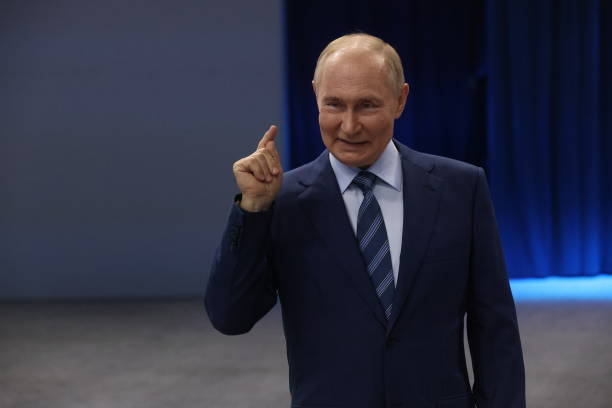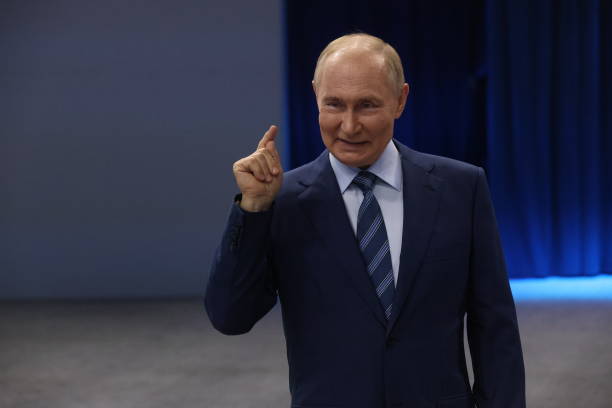Russian President Vladimir Putin warned on Friday that any Western military personnel stationed in Ukraine would be considered lawful targets for Russian attacks. His remarks, delivered at an economic forum in Vladivostok, come as Kyiv’s allies weigh how to guarantee Ukraine’s security after the war.
The statement followed French President Emmanuel Macron’s announcement that 26 countries had agreed to offer Ukraine postwar security commitments, including the possible deployment of international forces on land, at sea, and in the air.
Moscow has long used NATO expansion and Western troop deployments as a core justification for its invasion of Ukraine. Reiterating that stance, Putin declared: “If some troops appear there, especially now, during military operations, we proceed from the fact that these will be legitimate targets for destruction.” Yet he also said that if peace agreements were reached, he saw “no sense” in foreign troops being present in Ukraine.

His comments underscore a deep gulf between Russia’s position and Western efforts to secure Ukraine under any eventual settlement. Kyiv is pressing for strong, long-term Western guarantees to deter renewed Russian aggression. France and the UK—leading what they call a “coalition of the willing”—have signalled openness to sending troops after the war ends, while U.S. President Donald Trump has ruled out deploying American forces but hinted at possible air support.
Putin also insisted that any future security framework must include guarantees for Russia itself. “No one has discussed this with us at a serious level yet,” he complained, suggesting Moscow feels sidelined in ongoing Western deliberations.
Diplomacy between Moscow and Washington has so far failed to deliver results. Trump, who entered office in January vowing to end the conflict swiftly, hosted Putin at an Alaska summit last month with no breakthrough. Ukrainian President Volodymyr Zelenskiy, meanwhile, has repeatedly sought direct talks with the Kremlin to break the deadlock.
On Friday, Putin cast doubt on the usefulness of a meeting with Zelenskiy, saying agreement on key issues would be “practically impossible.” Nevertheless, he reiterated an offer to host the Ukrainian leader in Moscow under “100%” security guarantees—while dismissing Kyiv’s preference for a neutral venue as “excessive requests.”
Zelenskiy, for his part, signalled frustration. Without explicitly rejecting Moscow as a meeting site, he said Ukraine was ready for talks but doubted Putin’s sincerity: “He can speak but it’s just words, and nobody trusts his words.”
This exchange illustrates not only the hardened positions of both leaders but also the competing visions of postwar security shaping Western policy debates.



